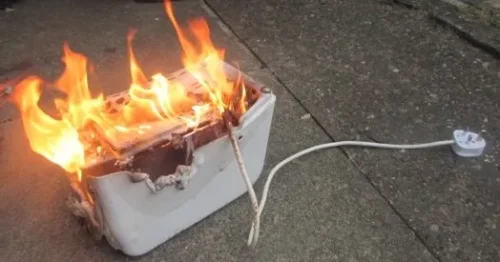
Over the years, Tesla’s short-sighted management culture, characterized by a grossly negligent mindset to dump product into the market as quickly as possible despite known flaws (essentially, “burn toast now, scrape later”), has resulted in some troubling instances. A glaring example is evident in the recent NHTSA recall case.
Tesla, Inc. (Tesla) is recalling certain 2023 Model S, X, and Y vehicles equipped with full self-driving computer 4.0 and running a software release version 2023.44.30 through 2023.44.30.6 or 2023.44.100. Software instability may prevent the rearview camera image from displaying.
In this safety regulator’s report it’s clear how a giddy “science fiction” dream of abruptly eliminating physical mirrors to use only software for visibility turned up as a predictably stupid and unsafe implementation.
The 2023 Tesla manufacturing processes, while aiming for a sleek design, pushed 200,000 vehicles onto public roads with unsafe visibility issues due to buggy software, essentially rendering drivers blind.
“Software instability”
That phrase is a HUGE dig by the NHTSA at counter-safety culture of Tesla. The car brand often bleats and gloats about rapidly throwing problems into software development hacks, ignoring regulations, instead of using traditional multi-modal automotive safety practices.
Any guess how Tesla will address this recall? With… wait for it… just more and more and more software instability.
One of the first to report problems with the update was 2023 Tesla Model Y Long Range owner Brandon Yang, who told us he has owned his electric SUV for less than four months. Yang was driving his Tesla when he noticed the car’s active safety and driving assists weren’t working, so he arranged with a Tesla service center to have his car updated. But when the vehicle tried to update itself to build 30.8, Yang’s car got stuck downloading the update and wouldn’t shut off, repeatedly cycling through attempts that wouldn’t complete.
This occurred over a period of more than 72 hours, during which the car gradually drained its battery. Yang eventually disabled Wi-Fi to break the cycle, but the car enabled an internal LTE antenna to continue trying (and failing) to update. After much back-and-forth with the service center, Yang was told his car needed a new Autopilot computer to fix the problem—though on pickup a week later, he was told a software script had fixed it after all
While trying to sort it all out, Yang posted to Reddit for advice, and was met with numerous other owners with the same issue. {…] Tesla however has shipped bad updates before, in one case recalling a Full Self-Driving Beta update that caused cars to slam on their brakes with alarming frequency.
The ballooning technical debt that is producing amateur-level script failures in 2023 Tesla cars should be no surprise. The more they depend on “rapid patch” fixes all the time and everywhere, instead of sound engineering principles and safety regulations, the more likely this all ends for them in financial and moral bankruptcy. Tesla is digging itself into a giant predictable engineering disaster, placing everyone in and around the car in danger.
In related news:
Tesla hacked, 24 zero-days demoed at Pwn2Own Automotive 2024
TWENTY FOUR ZERO-DAYS.